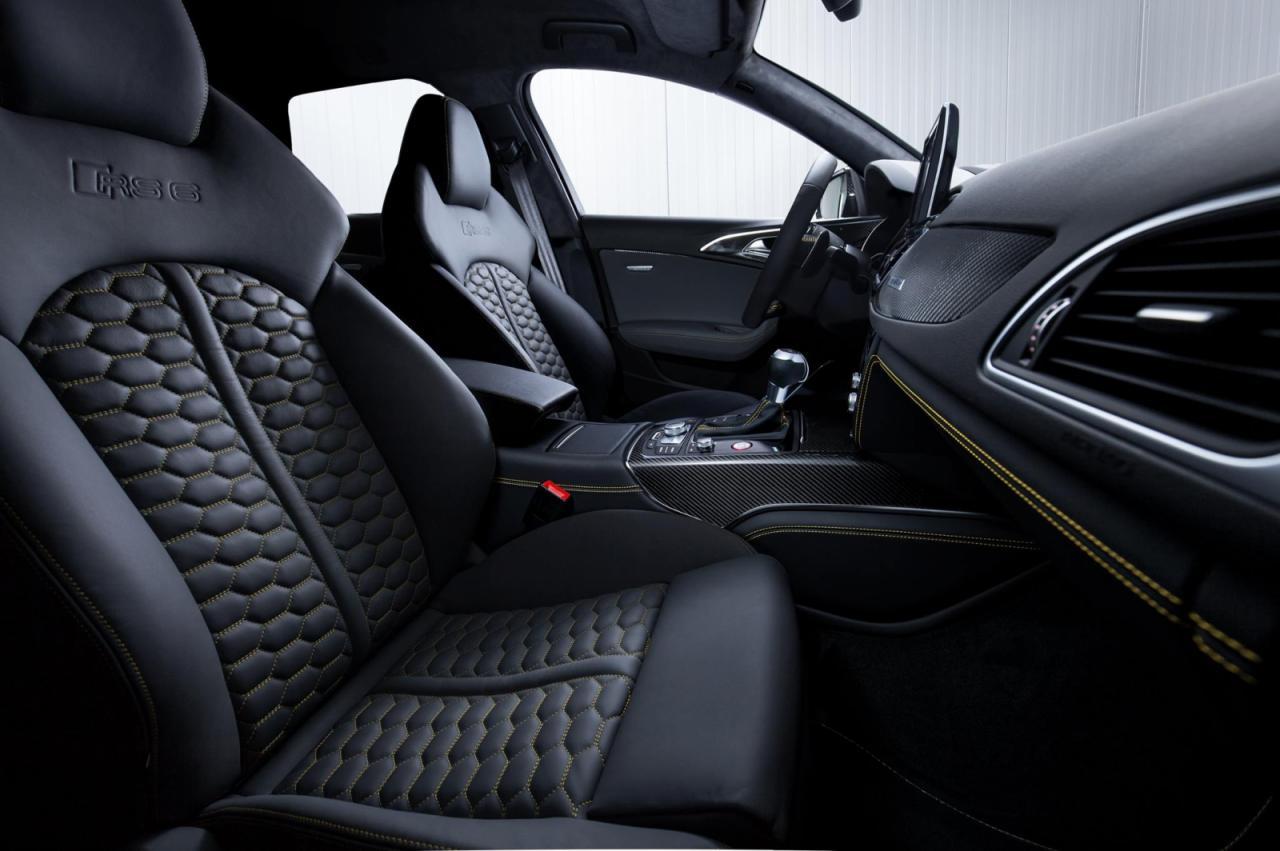If you’re reading this in America right now, you’re about to get very frustrated.
‘Audi exclusive’ is a bespoke customization program that offers factory-installed enhancements for vehicles across the automaker’s line, and one such vehicle is the Europe-only RS6 Avant.
The Avant is a sinister looking, high-performance people-carrier that we wish we had in America, but like most Audi estates, it won’t reach our shoes. In fact, outside of the A4 allroad, Audi station wagons are nonexistent in the States.
Upset yet?
Audi exclusive’s matte gray custom version makes it even worse, with a bevy of subtly aggressive styling enhancements featured inside and out.
Highlighted in the manufacturer’s photos is a bold ‘Quattro’ grill badge with carbon fiber surround, carbon fiber mirrors, and grill accents made from, you guessed it, carbon fiber. The Avant also fits slick black alloys.

Inside the cabin there’s more glossy polymer weave, as well as trick yellow stitching on the seats and dash.
The RS6 Avant costs the equivalent of about $120,000 in the UK, but this bespoke iterant version will undoubtedly cost more.
Mechanically, it is unchanged from the standard version, as it fits a 4.0-liter, twin-turbo V8 that produces 553 horsepower and 516 pound-feet of torque. The five-door can sprint from 0 to 60 mph in just 3.9 seconds, with room in the back for the family. Top speed is a limited 189 mph.
In the United States, the closest we currently have is the RS7, which features the same engine as the RS6 and starts at $106,500. However, it’s only offered as a sedan.


